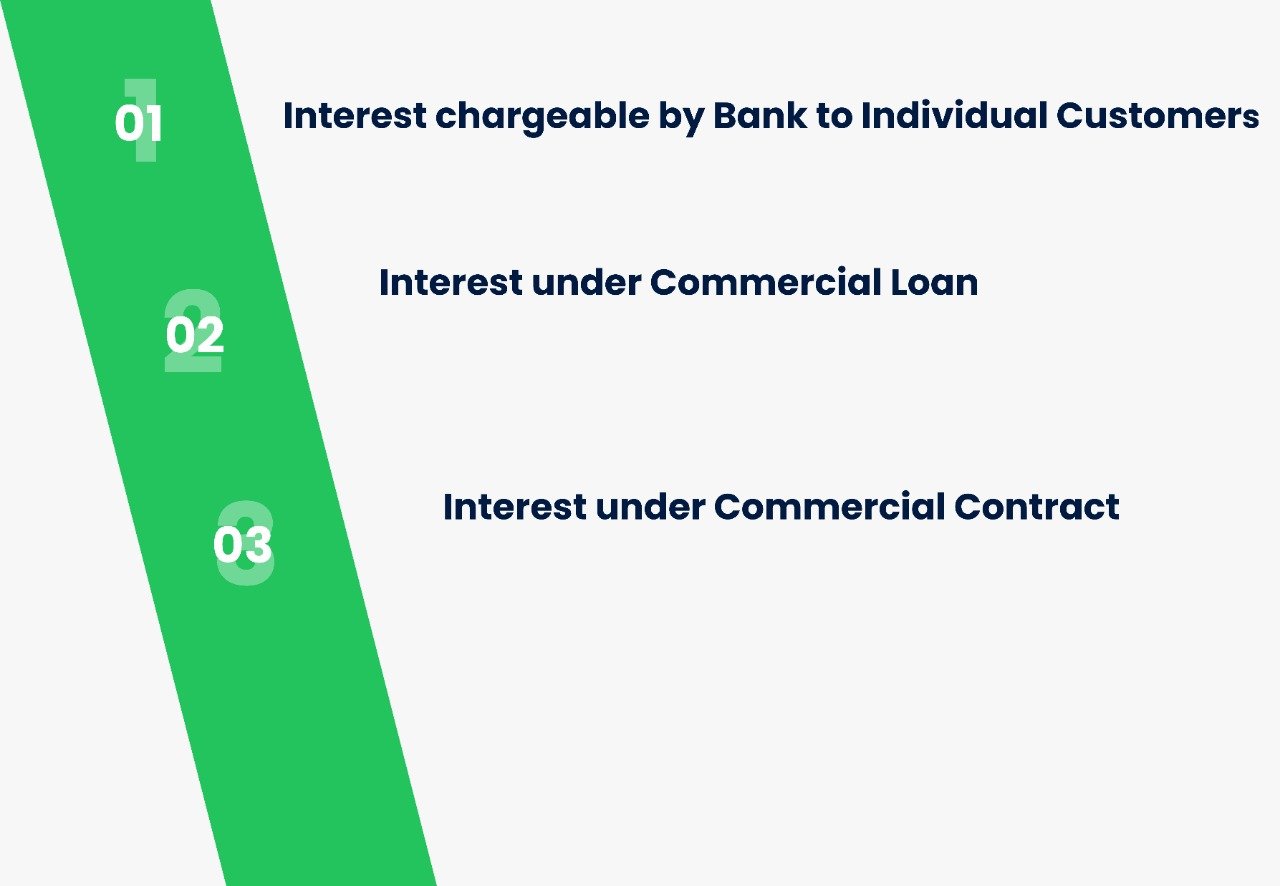In the United Arab Emirates (“UAE”), the power to charge interest, whether simple or compound, has always been a source of ambiguity for contracting parties. However, in 2018, the UAE passed Federal Law No. 14 on the Central Bank and Organizations of Financial Institutions and Activities (“New Banking Law”), which clarified the position of the UAE Central Bank (UAE Central Bank) on banks and financial institutions charging compound interest on credit and lending facilities, among other things.
The relevant sections of the New Banking Legislation, as well as broader developments in UAE law, are examined in this article, which have provided banks, financial institutions, and contracting parties with additional clarity on how to charge interest on money due in the UAE.
Developments in the Law
Interest, whether simple or compound, is forbidden in Islamic Sharia. Article 714 of Federal Law No. 5 of 1985 on Civil Transactions recognised the forbidding rule by declaring void any clause in a loan contract that does not secure the lender's right and does not provide for a benefit in excess of the transaction's essence. The Civil Transactions Law was later changed by Federal Law No. 1 of 1987, which made business transactions exempt from the Civil Transactions Law's jurisdiction.
The UAE Commercial Code, however, was created in response to economic necessity and growing concerns from the financial community, and it expressly allows interest to be imposed in a variety of commercial transactions. “Traders and any commercial activities engaged into by two contractual parties” are covered under the UAE Commercial Code. Simple interest can be imposed in this situation between any two parties who have agreed to carry out a commercial activity. While the UAE Commercial Code prevails over the UAE Civil Code in commercial transactions, it does not apply to transactions or agreements involving natural persons or individuals. While the UAE Commercial Code prevails over the UAE Civil Code in commercial transactions, it does not apply to transactions or agreements involving natural persons or individuals. As a result, charging interest in individual transactions is still a criminal offence.
Similarly, while the capacity of banks and other financial organisations to charge compound interest has been mostly discretionary, the introduction of the New Banking Law has provided some clarity on their authority to charge interest under more complex loan facilities.
The New Banking Law puts restrictions on financial institutions in respect to their actions as lenders and deposit takers, in addition to the UAE Central Bank's broader responsibility in directing monetary credit and banking policy in the UAE. Article 121 of the New Banking Law, for example, expressly bans banks and financial institutions from collecting interest on interest that has already accrued (compounding) on any credit or funding facilities provided to consumers. Although it is unclear whether this provision will allow for interest capitalization, the New Banking Law's implementing regulations (which have yet to be issued) will be crucial in providing details on how these provisions will be implemented in practise and the UAE Central Bank's regulatory powers over banks and financial institutions in the UAE.
Types of Interest Rates

Interest Chargeable by Bank to Individual Customers
Article 409 of the UAE Commercial Code expressly permits the levying of simple interest on loans provided by banks to individual customers, subject to the New Banking Law's position on compound interest in sophisticated lending facilities (including personal loans, car loans, overdraft facilities on current account and credit cards, wherein, banks must declare the rate of interest they intend to charge to the Central Bank). Prior to advertising and publishing the chargeable interest, each bank must get written approval of the rate of interest from the UAE Central Bank. While charging compound interest on loans and credit cards to individual consumers is a well-established and prevalent practise in the UAE, it is nonetheless unjustified under UAE rules and regulations.
Interest under Commercial Loan
The provisions of Articles 61 and 62, as well as Articles 76 and 77, of Federal Law No. 18 of 1993 in respect of Commercial Transactions, established the lender's right to charge interest on a commercial loan at the agreed rate in the contract, or, if there was no agreement, at the current interest rate in the market at the time of dealing. Furthermore, if the rate is established in the contract and the debtor is late in paying, the delay interest will be computed on the agreed rate until the debt is fully paid.
In other words, commercial banks and financial transactions in the UAE are allowed to charge simple interest on banking facilities and loans at agreed-upon or applied rates, although the rate cannot exceed 12 percent per year until the loan is fully paid off. This is in addition to charging the lender delay interest, which accrues from maturity dates unless otherwise agreed, as compensation for the delay without the necessity for the lender to prove any sustained damages as a result of the delay.
Interest under Commercial Contract
Interest is generally charged in commercial contracts as a kind of compensation for late payment. As previously stated, Article 88 of the UAE Commercial Code allows a debtor who has delayed payment to be forced to pay the creditor whatever rate of interest agreed upon by both parties as compensation, as long as it does not exceed the 12 percent per year maximum. Even though the UAE Commercial Code refers to this delay interest as "compensation," Article 89 confirms that this provision is not conditioned on the creditor establishing that he has suffered damages as a result of the delay.
In this regard, the Abu Dhabi Court of Cassation has established specific requirements that must be completed if the UAE Business Code's provisions are to be applied to commercial transactions. Among the key considerations outlined in the Abu Dhabi Court of Cassation's criteria are the following:
- the obligation's subject matter must be a sum of money that was known at the time the obligation arose;
- the sum must be an ascertained amount at the time of the demand for payment; and
- the debtor must have missed a payment deadline.
Furthermore, Article 91 of the UAE Commercial Code states that a creditor may claim supplemental damage in addition to the delay interest, and that the creditor is not necessary to prove that the damages caused by the stated interest were caused by the debtor's deception or gross failure.
However, the UAE Commercial Code does not clarify whether “any reference to interest” includes compound interest, or whether compound interest conditions in a loan or commercial agreement are authorised. The Dubai Court of Cassation, however, concluded that any provisions “contrary to public order,” which was interpreted to include those stipulating compound interest, will be regarded null and void by the UAE courts, based on Sharia Law principles and the UAE Civil Code. Similarly, in any business setting, the UAE Courts will give effect to contractual terms for payment of interest, provided that these clauses do not exceed the 12 percent per year maximum and are not in any way expressly adverse to ‘public order.'
Conclusion
The New Banking Law puts restrictions on financial institutions in respect to their actions as lenders and deposit takers, in addition to the UAE Central Bank's broader responsibility in directing monetary credit and banking policy in the UAE. Connect with Dhanguard to know about your interest rates.
DhanGuard: All-in-One Solution for Business Setup in Dubai, UAE
DhanGuard is your ultimate one-stop solution for all your business needs. Whether you’re planning to set up a new company or expand your existing business in the UAE, we’ve got you covered with our comprehensive range of services. From Business Setup in UAE and Company Formation in Dubai to managing your financial and legal compliance, we provide everything you need under one roof.
Our services include:
- Company Formation in UAE and Dubai
- Opening a Business Bank Account in UAE and Dubai with a 99% success rate
- VAT & Corporate Tax Compliance
- Accounting, Bookkeeping, and Auditing Services
- Trade License Renewal
- Golden Visa Assistance
Let DhanGuard make your journey of Business Setup in Dubai seamless and hassle-free!














